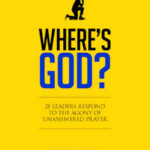We run our website the way we wished the whole internet worked: we provide high quality original content with no ads. We are funded solely by your direct support. Please consider supporting this project.
Speaking of Tragedies
 Since we’ve been reflecting on recent tragedies and the varying responses to them, we thought we would add this voice to the mix. This article from the New Yorker points out the differences in media coverage between the Aurora shootings and the shootings at the Sikh temple in Wisconsin.
Since we’ve been reflecting on recent tragedies and the varying responses to them, we thought we would add this voice to the mix. This article from the New Yorker points out the differences in media coverage between the Aurora shootings and the shootings at the Sikh temple in Wisconsin.
From the article:
Sadly, the media has ignored the universal elements of this story, distracted perhaps by the unfamiliar names and thick accents of the victims’ families. They present a narrative more reassuring to their viewers, one which rarely uses the word terrorism and which makes it clear that you have little to worry about if you’re not Sikh or Muslim. As a Sikh teaching at a Catholic university in the Midwest, I was both confused and offended by this framing. One need not be Pastor Niemöller to understand our shared loss, or to remember that a similar set of beliefs motivated Timothy McVeigh to kill a hundred and sixty-eight (mainly white) Americans in Oklahoma City.
Image by Alan Cleaver. Used in accordance with Creative Commons. Sourced via Flickr.
Category: General
Tags: Problem of Evil, Racial Reconciliation
Related Reading

The Warfare Worldview: What Would You Tell the Younger You?
Aftab Uzzaman via Compfight Jessica Kelley has been fleshing out the Warfare Worldview on her blog in a series of posts using the lens of the death of her child, Henry. Jessica is a beautiful writer, and her reflections are powerful and tender. You’re going to want to be listening to her. Her voice is an…

When Prayers Go Unanswered
Recently Frank Viola published a free e-book where 21 Christian leaders responded to the following question: Why is it that God doesn’t often answer the desperate prayers of His people for deliverance, protection, healing, etc.? You can download the free ebook by clicking here. The following excerpt is Greg’s contribution to this book: _____________________ Two very ill children are…

What To Do with the Bible’s Talk of Satan
Recently, Roger Olson raised the question on his blog about why Satan is ignored in modern theology. He observed how Greg’s theology takes an “obvious, ‘up front,’ blatant belief in a very personal, very real, very active Satan who has great power in the world.” Because we often have so little to say about Satan…

How To Talk about Theology
Social media is full of theological debate. Theological arguments that formerly took months or even years to get in print, now only takes the time to write a post or 140 characters and click “publish.” Social media is great in that it makes space for all of our voices. However, it also seems to elevate…

Why Racial Reconciliation Matters
Rachel Held Evans invited Grace Biskie to reflect on racial reconciliation on her blog this week. Grace’s perspective is an important one to hear. Check out Church Stories: A Plea to Engage in Racial Reconciliation. From the article: The problem with disengaging is that it’s not what God intended for us. I believe God expressly…

Gays and God’s Beebe Bird Massacre
So, what about those thousands of birds that died suddenly in Beebe Arkansas on New Years Eve? Some say it was caused by fireworks. Others say it more likely was due to hail or lightening. And, of course, there will always be those who chalk it up to pesty aliens. (Why don’t they just leave…
